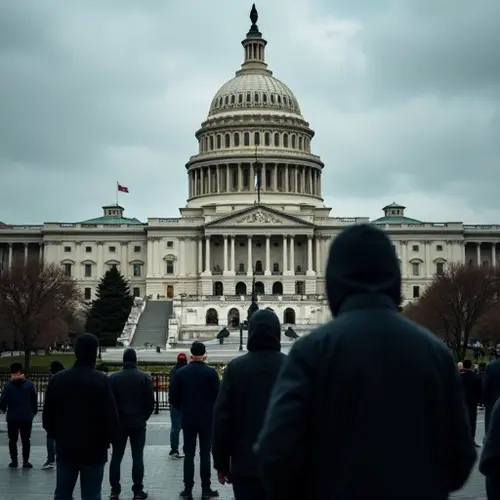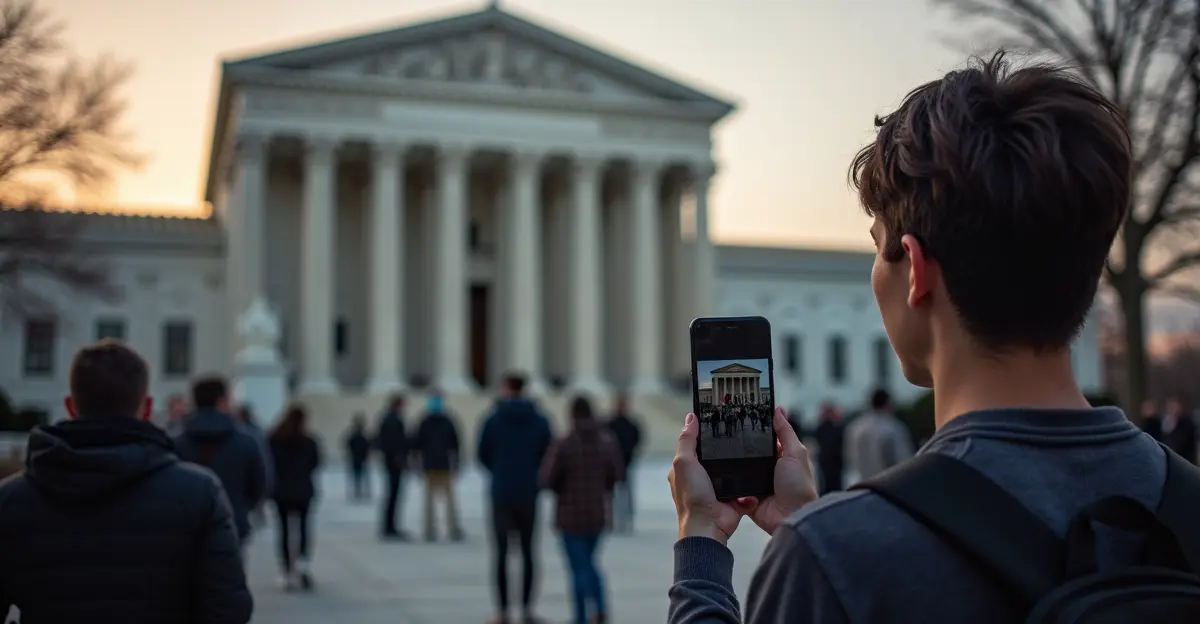TikTok faces expanding global regulatory scrutiny as multiple countries implement restrictions over data security and national security concerns. The US Supreme Court upheld a ban law, EU imposed €530M fine, and countries worldwide restrict the platform.

TikTok's Regulatory Crisis Expands Worldwide
The popular video-sharing platform TikTok is facing unprecedented regulatory scrutiny across multiple continents as governments intensify their focus on data security and national security concerns. What began as isolated restrictions has evolved into a coordinated global response targeting the Chinese-owned social media giant.
United States: Supreme Court Upholds Ban Legislation
In a landmark decision on January 17, 2025, the U.S. Supreme Court upheld the Protecting Americans from Foreign Adversary Controlled Applications Act (PAFACA), requiring ByteDance to divest TikTok's U.S. operations within 180 days or face a nationwide ban. The court ruled that Congress had demonstrated sufficient national security concerns to justify the legislation under intermediate scrutiny review.
'This represents a pivotal moment where national security concerns have overcome free speech arguments,' said William Akoto, a professor at American University specializing in technology policy. 'The court accepted that China's National Intelligence Law creates legitimate security risks, even without direct evidence of data misuse.'
President Trump issued a 75-day reprieve on January 20, 2025, delaying enforcement and creating uncertainty for TikTok's 170 million American users.
European Union: Multiple Investigations and Record Fines
The European Commission has launched multiple investigations under both the Digital Services Act (DSA) and General Data Protection Regulation (GDPR). In May 2025, TikTok was fined €530 million for unlawful data transfers to China and misleading regulators about these transfers.
'The pattern of non-compliance by TikTok on transparency, user protection, and regulatory cooperation is deeply concerning,' stated a European Commission spokesperson. 'We are committed to enforcing our digital sovereignty and protecting European citizens' data.'
The EU is also investigating TikTok's role in election interference following manipulation concerns during Romania's 2024 presidential election, as well as concerns about addictive algorithmic design and inadequate age verification.
Global Restrictions Spread Across Continents
Canada has implemented restrictions on TikTok for government devices, citing similar data privacy and national security concerns. Australia has followed suit with comparable measures, while India maintains its complete ban implemented in 2020 following military tensions with China.
'The global regulatory response reflects growing consensus about the risks posed by foreign-controlled social media platforms,' noted cybersecurity expert Dr. Sarah Chen. 'Countries are recognizing that data sovereignty cannot be compromised, regardless of a platform's popularity.'
Other nations including France, Germany, and the United Kingdom have banned TikTok on government devices, creating a patchwork of restrictions that complicates TikTok's global operations.
Underlying Security Concerns
The primary driver of these regulatory actions is China's 2017 National Intelligence Law, which requires Chinese companies to cooperate with intelligence work. While TikTok maintains it has never shared user data with the Chinese government and stores U.S. user data in Oracle servers in Texas, regulators remain unconvinced.
'The legal framework creates an inherent conflict of interest,' explained Professor Akoto. 'Even if TikTok hasn't shared data yet, the Chinese government has the legal authority to demand it at any time.'
The concerns extend beyond data privacy to include potential algorithmic manipulation for propaganda purposes and the platform's influence on youth culture and political discourse.
Industry Impact and Future Outlook
The regulatory crackdown has forced TikTok to implement Project Texas, a $1.5 billion initiative to create a separate U.S. data governance structure. However, critics question whether this adequately addresses fundamental security concerns.
'We're seeing the beginning of a broader decoupling of Chinese and Western tech ecosystems,' said Dr. Chen. 'The TikTok case may embolden further actions against other Chinese-owned applications like WeChat, CapCut, and Temu.'
As the 75-day reprieve in the U.S. approaches its expiration, TikTok faces critical decisions about its future structure and ownership. The platform's response to these global regulatory challenges will likely shape the future of international tech governance and digital sovereignty for years to come.

 Nederlands
Nederlands
 English
English
 Deutsch
Deutsch
 Français
Français
 Español
Español
 Português
Português









